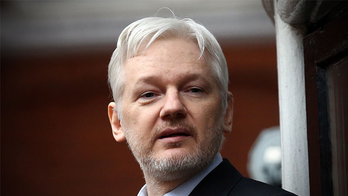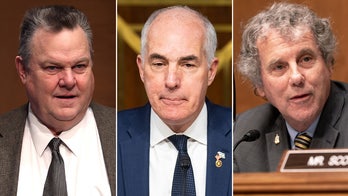President Obama has repeatedly promised that his number one priority is keeping the American people safe. But there have been two known terror attempts on U.S. soil in the last four and a half months, and the plots failed due to user error, rather than government intervention.
"The American people should be assured that we are doing everything in our power to keep you and your family safe and secure during this busy holiday season," Mr. Obama said after the failed attempt to take down a U.S. airliner on Christmas Day.
Homeland Security Secretary Janet Napolitano came under fire for initially assessing that "the system worked" in that case, and ultimately she and other administration officials were forced to acknowledge that the attempted bombing revealed a "systemic failure."
The administration eventually admit that the situation could have been prevented or disrupted.
In the president's initial remarks on the plot, he pointed to the "quick and heroic actions of passengers and crew" for taking down the would-be bomber.
"We need to learn from this episode and act quickly to fix the flaws in our system because our security is at stake and lives are at stake," Mr. Obama said four days after the attempted attack.
On Tuesday the president credited "ordinary citizens" with the failure of Saturday's Times Square incident. Two street vendors alerted the NYPD to the suspicious Nissan Pathfinder packed with explosives in Manhattan's busy epicenter. "I've had the opportunity to personally thank the citizens and law enforcement officers whose quick thinking may have saved hundreds of lives." the president said before remarks to the Business Council.
Observers say the administration got lucky, just as the Bush White House did in the case of the attempted shoe bomber Richard Reid, who tried to blow up an airline three months after the 9/11 attacks.
"That's kind of disturbing in a sense. We got lucky in the book ends," says Heritage Foundation scholar James Carafano, whose records indicate that the U.S. has foiled 31 plots since 9/11. "So the question is what's changed, how come we've had this unrelenting string of success and then at the end we have two very serious threats which we just kind of luck upon."
Carafano, an Army veteran with counterterrorism and defense experience, admits that foiling every attempted terror event is an impossible task. "Let's be honest here, you're not going to stop every terrorist attack everywhere every time and it's an unrealistic expectation for our government to protect us from everything." But he says that federal agencies should be able to stop would-be bombers if they are tied to known extremist groups. "If there's a trans-international plot we ought to be able to stop that. I don't understand why we couldn't stop the Christmas bomber that was a plot from a known enemy, using a known tactic, using a known network."
The suspect in the attempted plot in Times Square -- who has now been officially charged -- has reportedly told law enforcement officials that he trained at a terror camp in Pakistan, but claims to have acted alone. Authorities in Pakistan, however, have taken as many as ten people into custody in connection with the case.
The White House on Tuesday again defended the systems that the government has in place to prevent attacks on U.S. soil, with Gibbs telling reporters that the no-fly list worked in this situation.
"There was a system that provided a name on a list intended not to have an individual fly. Customs and Border Patrol, using that system, found that individual and he was apprehended and wasn't allowed to fly," Gibbs said.
He was referring to the fact that the would-be Times Square bomber was able to board an international flight at New York's JFK airport despite efforts by the FBI to track him down.
Gibbs said the administration has increased its efforts to prevent future attacks in the wake of the failed Christmas bombing and Saturday's unsuccessful attack in the Big Apple. "We have greatly increased our tempo as it relates to terrorist activites throughout the world on a number of continents," he told reporters in a late Tuesday briefing at the White House."




